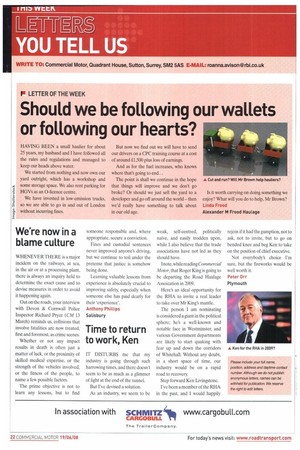We're now in a blame culture
Page 22

If you've noticed an error in this article please click here to report it so we can fix it.
WHENEVER THERE is a major incident on the railways, at sea, in the air or at a processing plant, there is always an inquiry held to determine the exact cause and to devise measures in order to avoid it happening again.
Out on the roads, your interview with Devon & Cornwall Police Inspector Richard Pryce (CM 13 March) reminds us, collisions that involve fatalities are now treated, first and foremost, as crime scenes.
Whether or not any impact results in death is often just a matter of luck, or the proximity of skilled medical expertise, or the strength of the vehicles involved, or the fitness of the people, to name a few possible factors.
The prime objective is not to learn any lessons, but to find someone responsible and, where appropriate, secure a conviction.
Fines and custodial sentences never improved anyone's driving, but we continue to toil under the pretense that justice is somehow being done.
Learning valuable lessons from experience is absolutely crucial to improving safety, especially when someone else has paid dearly for their 'experience'.
Anthony Phillips Salisbury
















































































































































































































